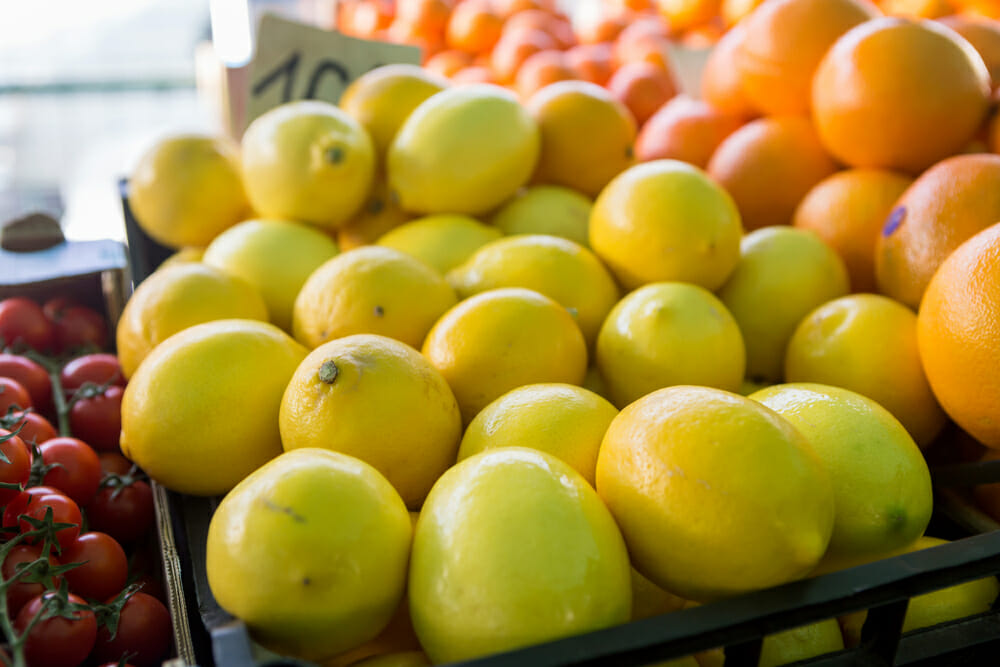Canker sores are usually small sores that develop on the soft tissues inside the mouth. Whether they crop up on your gums, cheeks, or tongue, canker sores all have one thing in common – they can be painful and uncomfortable.
Unlike oral sores that develop as a result of viral, fungal, or bacterial infections, it might seem like canker sores appear with no rhyme or reason. There are, however, several factors that can contribute to their development, and your diet just might be to blame.
9 Common Foods to Avoid if You Get Canker Sores
1. Coffee
Although it might be your favorite part of the morning (mid-morning, afternoon, and evening – let’s be honest), your much-anticipated cup of coffee might be causing canker sores to develop in your mouth.
Coffee contains a high amount of salicylic acid, which can irritate your gums, cheeks, and tongue, leading canker sores to develop.
2. Citrus Fruit
Although they’re high in vitamin C which can provide support to your immune system, citrus fruits contain another type of acid. Like the acid in coffee, citric acid can also irritate the soft tissues inside your mouth and cause or worsen canker sores.
If you’re highly prone to canker sores or have active ones in your mouth, avoid citrus fruits and juices like oranges, grapefruits, lemons, limes, and pineapple.
3. Strawberries
Like coffee and citrus, strawberries are also on the acidic side. If you’re prone to canker sores, choose a different type of berry and fruit to complete your balanced diet.
4. Tomatoes
Tomatoes are highly acidic. This means tomato sauce and tomato soups are too. If you have canker sores, go easy on the pizza, lasagna, and pasta drenched in marinara – and, at least for a little while, find another soup for dunking your grilled cheese.
5. Chocolate
In addition to acidity, foods to which you are sensitive or allergic can also lead to tissue irritation and canker sores.
For many people, chocolate is a food allergy. However, even if you aren’t allergic to cocoa beans themselves, you might be allergic to milk, soy, or tree nuts contained in your favorite chocolate treats.
When you want to indulge, look for chocolates that are allergy-friendly.
6. Anything High in Gluten
Gluten is another food to which people are commonly allergic or sensitive. If you have celiac disease or another type of gluten allergy or sensitivity, then it’s, unfortunately, best to stay away from anything that contains glutenous wheat.
While it’s not clearly understood why a gluten sensitivity that occurs in the intestines causes soft tissue irritation in the mouth, it might have something to do with the vitamin deficiency that occurs when your intestines cannot properly digest food.
7. Spicy Foods
Like acidic foods, foods containing hot peppers and other spicy spices can also irritate the soft tissues in your mouth. If you’re prone to canker sores, you probably do not have to give up spicy foods altogether.
However, the next time you’re about to order your favorite Thai dish, go with just one or two chili peppers instead of the full 10. As a bonus, by reducing the amount of heat in your food, you can actually taste the flavors better.
8. Soda
Soft drinks contain high amounts of acid and corn syrup. Both of these ingredients lead to inflammation and irritation that can cause canker sores in your mouth.
Although switching to diet soda eliminates some of the sugar, diet sodas are just as acidic as regular soda and they contain artificial sweeteners which present a whole host of their own health risks.
Plus, the sugar and acids in soft drinks are terrible for your teeth, as they erode your tooth enamel while you sip on them, leading to tooth decay.
For the sake of your soft tissues, teeth, and health, it is best to avoid soft drinks altogether.
9. Abrasive Foods
Many people who have traditional metal braces complain about canker sores. For the same reason that braces can cause sores inside the mouth, abrasive foods can too.
If you’re prone to canker sores, avoid any sharp, poky, or abrasive foods that could irritate the soft tissues in your mouth. This includes things like pretzels, chips, salty foods, and nuts.
Other Risk Factors for Canker Sores
In addition to certain foods worsening and/or causing canker sores, there are a few other factors that can play into their development, such as:
- High levels of emotional stress or anxiety
- Metal braces
- Poor oral hygiene
- Vitamin deficiencies (zinc, B-12, folic acid, or iron)
- Immunodeficiencies
- Certain diseases and medical conditions
- Hormone changes
- Oral hygiene products that contain the ingredient, sodium lauryl sulfate
- Being a teen, young adult, and/or female
- Family history
When to See a Dentist About Canker Sores
Although they can be uncomfortable, painful, and annoying, most canker sores heal on their own. You should, however, schedule an appointment to see Dr. Harding or your general healthcare practitioner if your canker sores cause a great deal of pain, extend to your lips, make it difficult to eat or drink, are accompanied by a fever, grow larger, become infected, or do not heal on their own after two weeks.
During an appointment, our dentist can examine your canker sores and the other tissues in your mouth to look for signs of bacterial infection or early signs of oral cancer. Dr. Harding can provide you with additional care instructions to help you get your canker sores under control.
To learn more or schedule an appointment, we welcome you to contact Dentistry of West Bend today.


Recent Comments